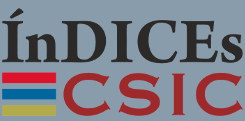Normalising community-led, empowered, disaster planning: Reshaping norms of power and knowledge
##plugins.pubIds.doi.readerDisplayName##:
https://doi.org/10.35295/osls.iisl/0000-0000-0000-1258Gako-hitzak:
Disasters, Australia, normalisation, shared responsibilityLaburpena
Disasters (and the dynamics that proceed and follow them) are inherently disruptive of customary routines and taken for granted ordinariness. Many fear that in the context of climate change disasters will become “the new norm”. How we prepare for, respond to, and recover from disasters provide a rich terrain for exploring “normality” and interrogating normalising processes. In this article we draw on insights from empirical research on policy efforts in disaster preparedness in New South Wales, Australia. This research suggests that understandings of “the norm” is a site of contestation. This discursive debate is most evident in policy and practice prescriptions for “shared responsibility”. International and national policy is shifting responsibility for disaster preparedness away from institutions of the State to the individual within the local community. In practice, we see this shift simultaneously resisted and embraced with “norms” in disasters reshaped in multiple sites and in multiple directions. The paper concludes that engagement in complex debates offers the possibility to disrupt traditional pattens and normalise community-led, empowered, responses to disasters.
##plugins.generic.usageStats.downloads##
Metrics
Downloads:
PDF_12_3_Rawsthorne_et_al_OSLS (English) 383
XML_12_3_Rawsthorne_et_al_OSLS (English) 49
Erreferentziak
Atkinson, C., and Curnin, S., 2020. Sharing responsibility in disaster management policy. Progress in Disaster Science, vol. 7.
Banks, N., and Austin, D., 2019. Climate Ready Communities: empowering communities to spread climate preparedness messaging and take local action. Australian Journal of Emergency Management [online], Monograph No. 5, pp. 61–65. https://www.aidr.org.au/media/7379/monograph-no5-extended-abstracts-final.pdf [Accessed 13 October 2021].
Commonwealth of Australia, 2018. National Disaster Risk Reduction Framework [online]. Belconnen: Department of Home Affairs, Commonwealth of Australia. Available from: https://www.homeaffairs.gov.au/emergency/files/national-disaster-risk-reduction-framework.pdf [Accessed 13 October 2021].
Council of Australian Governments, 2011a. Council of Australian Governments Meeting: Communiqué 13 February. Australian Journal of Emergency Management [online], 26(2). Available from: https://ajem.infoservices.com.au/items/AJEM-26-02-04 [Accessed 13 October 2021].
Council of Australian Governments, 2011b. National Strategy for Disaster Resilience [online]. Barton: Commonwealth of Australia. Available from: https://www.homeaffairs.gov.au/emergency/files/national-strategy-disaster-resilience.pdf [Accessed 13 October 2021].
Cretney, R., 2018. Beyond public meetings: diverse forms of community led recovery following disaster. International Journal of Disaster Risk Reduction, vol. 28, pp. 122–130.
Dominey-Howes, D., 2015. Explainer: are natural disasters on the rise? The Conversation [online], 25 March. Available from: https://theconversation.com/explainer-are-natural-disasters-on-the-rise-39232 [Accessed 13 October 2021].
Foucault, M., 1980. The Archaeology of Knowledge. New York: Routledge.
Foucault, M., 1989. Power/Knowledge: Selected Interviews and Other Writings. New York: Pantheon.
Gibbs, L., et al., 2015. Cost and outcomes associated with participating in the Community Fireguard Program: Experiences from the Black Saturday bushfires in Victoria, Australia. International Journal of Disaster Risk Reduction [online], vol. 13, pp. 375–380. Available from: https://doi.org/10.1016/j.ijdrr.2015.07.016 [Accessed 21 October 2021].
Howard, A., and Rawsthorne, M., 2019. Everyday Community Practice. Sydney: Allen & Unwin.
Lanzara, G.F., 1983. Ephemeral organizations in extreme environments: Emergence, strategy, extinction. Journal of Management Studies, 20(1), pp. 71–95.
Lewis, A., 2019. Everyday heroes: Meet firefighters from FRNSW and RFS Riverina crews who fought to stop NSW burning. The Courier [online], 15 November. Available from: https://www.thecourier.com.au/story/6494883/everyday-heroes-meet-local-firies-who-fought-to-stop-nsw-burning/ [Accessed 13 October 2021].
Lukasiewicz, A., Dovers, S., and Eburn, M., 2017. Shared responsibility: The who, what and how. Environmental Hazards, 16(4), pp. 291–313.
Maguire, P., 2001, Uneven ground: feminisms and action research. In: P. Reason and H. Bradbury, eds., Handbook of action research: Participative inquiry and practice. Thousand Oaks: Sage.
McIntyre, A., 2008. Participatory action research. Thousand Oaks: Sage.
McLennan, B., and Eburn, M., 2015. Exposing hidden-value trade-offs: sharing wildfire management responsibility between government and citizens. International Journal of Wildland Fire [online], 24(2), pp. 162–169. Available from: https://doi.org/10.1071/WF12201 [Accessed 13 October 2021].
McTaggart, R., ed., 1997. Participatory action research: International contexts and consequences. Albany: State University of New York Press.
Pestrin, S., and Seiler, M., 2020. Victorian bushfires: share your message of support for our heroes and communities. The Herald Sun [online], 20 January. Available from: https://www.heraldsun.com.au/leader/victorian-bushfires-share-your-message-of-support-for-our-heroes-and-communities/news-story/ab8b62f1737f5b62699da867edd57114 [Accessed 13 October 2021].
Petherbridge, D 2016. What’s critical about vulnerability? Rethinking interdependence, recognition, and power. Hypatia, 31(3), pp. 589–604.
Reason, P., and Bradbury, H., 2000. Introduction: inquiry and participation in search of a world worthy of human aspiration. In: P. Reason and H. Bradbury, eds., Handbook of action research: Participative inquiry and practice. Thousand Oaks: Sage.
Silver, A., and Matthews, L., 2017. The use of Facebook for information seeking, decision support, and self-organization following a significant disaster. Information, Communication & Society, 20(11), pp. 1680–1697.
United Nations Office for Disaster Risk Reduction, 2015. Sendai Framework for Disaster Risk Reduction 2015–2030 [online]. Sendai: Third United Nations World Conference on Disaster Risk Reduction, 14-18 March. Available from: https://www.preventionweb.net/files/43291_sendaiframeworkfordrren.pdf [Accessed 13 October 2021].
##submission.downloads##
Argitaratuta
##submission.howToCite##
Zenbakia
Atala
##submission.license##
##submission.copyrightStatement##
##submission.license.cc.by-nc-nd4.footer##OSLS strictly respects intellectual property rights and it is our policy that the author retains copyright, and articles are made available under a Creative Commons licence. The Creative Commons Non-Commercial Attribution No-Derivatives licence is our default licence, further details available at https://creativecommons.org/licenses/by-nc-nd/4.0 If this is not acceptable to you, please contact us.
The non-exclusive permission you grant to us includes the rights to disseminate the bibliographic details of the article, including the abstract supplied by you, and to authorise others, including bibliographic databases, indexing and contents alerting services, to copy and communicate these details.
For information on how to share and store your own article at each stage of production from submission to final publication, please read our Self-Archiving and Sharing policy.
The Copyright Notice showing the author and co-authors, and the Creative Commons license will be displayed on the article, and you must agree to this as part of the submission process. Please ensure that all co-authors are properly attributed and that they understand and accept these terms.























